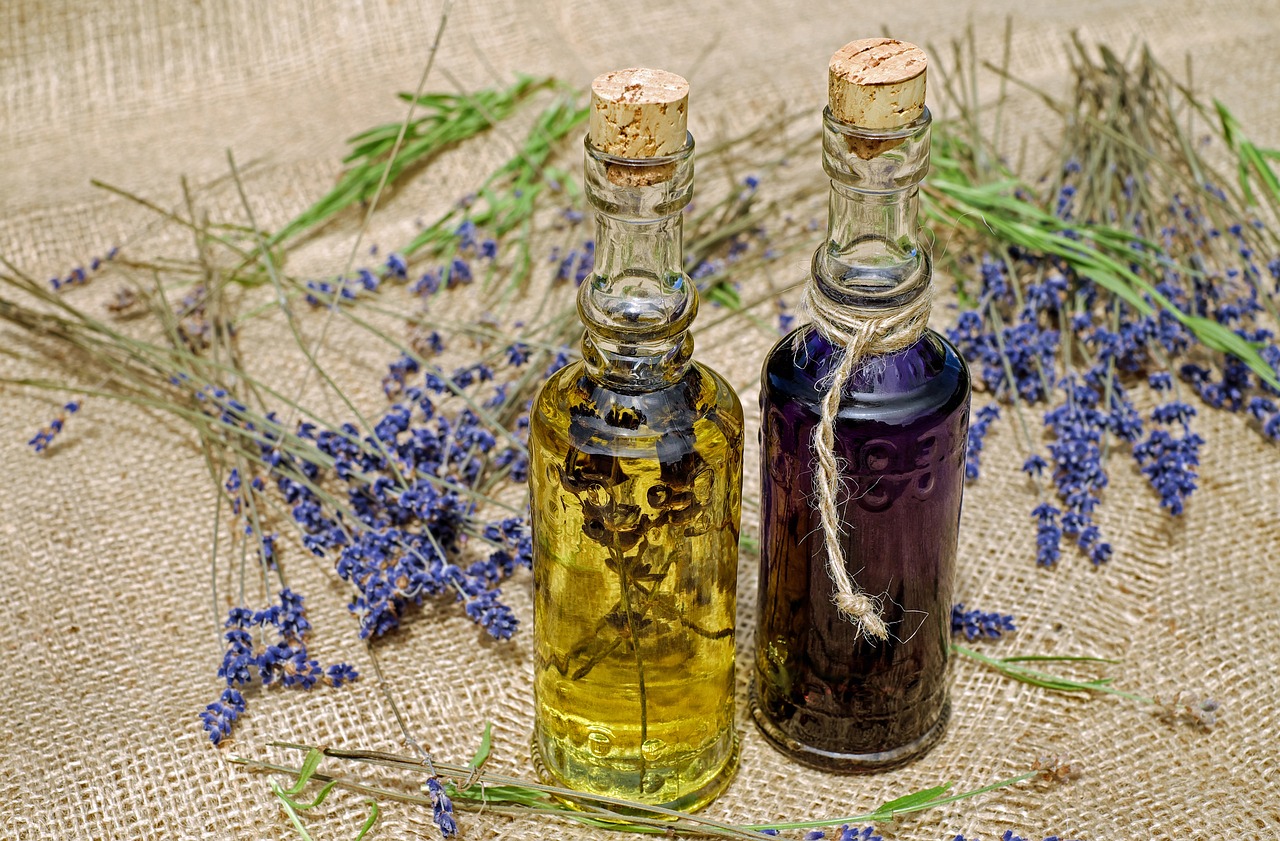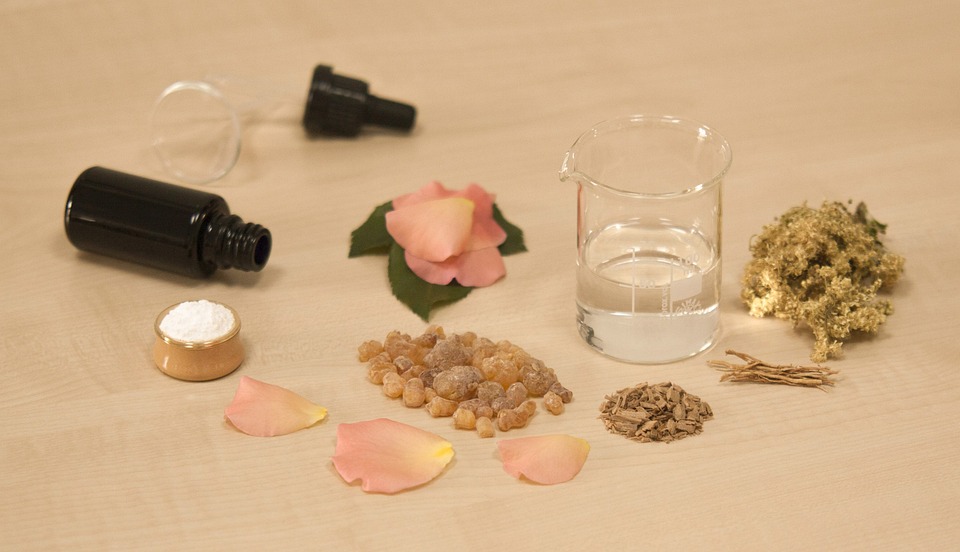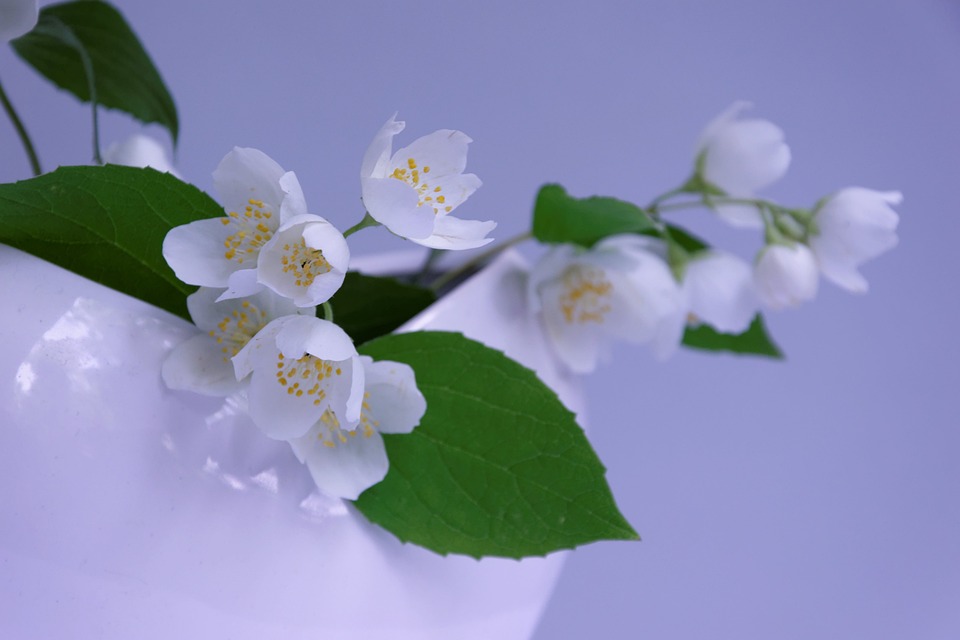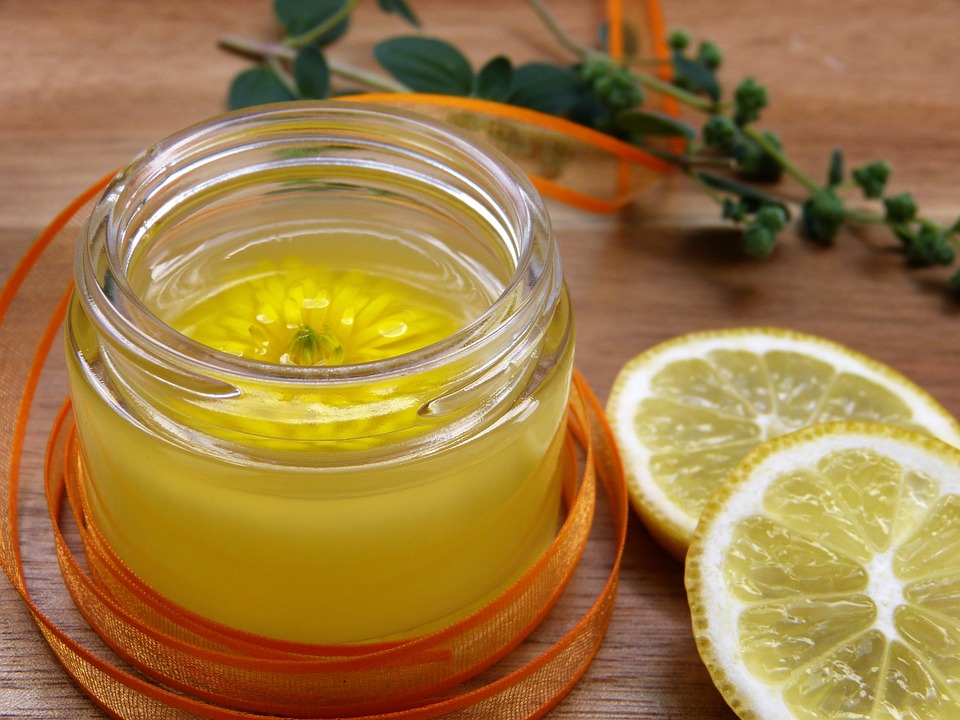Essential oils are fat-soluble substances extracted from different parts of plants that have, above all, these three main functions. Therapeutic benefits, fragrances and home cleaning! In Ancient Egypt, its main use was related to the cleaning and purification of the environment. For example, do you know those lavender scents you find in certain market sessions? So, this is a beautiful example of essential oil! However, there are several other benefits attributed to this substance. Do you want to know more about them? Take a look!
Difference between essential oils and vegetable oils?
Belonging to the group of fatty acids, the two types of oils have similar basic properties (both are extracted from vegetables), but with completely different compositions and uses.
In other words, while vegetable oils are widely used in cooking (like soy, corn, sunflower oil and so on) and, in fact, are part of a healthy daily diet (like the [three omega types], essential oils are characterized by their strong aroma and should never be used in gastronomy - except in certain mixtures of teas.
Another difference is regarding their molecular chains. The vast majority of vegetable oils have longer and “heavy” chains and the liquid is characterized by being more viscous. Essential oils, on the other hand, are made up of smaller and “lighter” chains, with more volatile properties and being much less thick. In addition, essential oils are usually extracted from the stems, leaves, flowers and roots of vegetables, while vegetable oils come from fruits and seeds.
Aromatherapy is one of the main terms associated with essential oils
Aphrodisiacs, analgesics, antidepressants, respiratory … There are several functions and therapeutic properties linked to one of the branches that use essential oils, known as aromatherapy. [These essences extracted from plants and flowers], because they are extremely concentrated, are often used in compresses or with extremely specific doses.
Some studies argue that essential oils are a type of alternative medicine, and each of them has a beneficial function for the human body - whether physical or emotional - and, therefore, it is very common to see them in massage parlours, spas and the like. Its uses involve [holistic therapies], body massages, baths and even healing practices (in certain religious rituals), which can be used by inhalation (the fastest and most common way), topical application and ingestion.
How to use and some necessary care
Environment flavouring
The essential oils are very concentrated, thus having a very strong when pure aroma. For the aromatization of environments, you can add a drop in the environment, every one meter, which will be enough. Another possibility is to dilute about 10 ml of pure essential oil in 1 litre of water, moisten a cloth with this solution and pass in the desired environment; or apply a few drops in a diffuser. Avoid exaggerating the essential oil for aromatization, as, due to its high concentration of VOCs, they can cause nausea and malaise when there is excessive exposure.
In a hurry
When a region of the body is impacted or injured, pain, swelling and redness soon appear. Many people use the compress to relieve and speed recovery from this impact or injury, but did you know that some types of essential oils can help even more in this recovery? Some oils have analgesic properties and peripheral circulation stimulants, and can therefore be used for the treatment of muscle contusion. Two to three drops of essential oil in the compress is enough to increase the effectiveness and contribute to muscle relaxation.
Massage
The essential oils are widely used in massages, thanks to its analgesic, relaxing and peripheral circulation stimulant. It is good to remember that the essential oil, as it is very concentrated, must be diluted in some carrier oil, such as vegetable oil, to avoid possible skin irritations and adverse reactions. Approximately 35 drops for every 100 ml of vegetable oil is a good proportion for application in massages.
Inhalation
Some essential oils can improve the respiratory system (in cold situations, for example), in addition to providing possible psychological relaxation. The addition of a few drops of the oil (around four) in a container with hot water can help the breathing of the person who will make the inhalation.
Aromatherapy is a natural remedy for rhinitis.
Cleaning
Several types of essential oils carry compounds that have antiseptic action. Therefore, they can be used in cleaning, killing several microorganisms. Some pure drops can be applied on a cloth that is wiped on the desired area, however, the drops must be spread well so the aroma is not too strong.
Hair
The essential oils can also be used in hair treatment, mixed with a few drops (ten) in shampoo (100 ml) or oil plant (100 ml) and the mixture massaging the scalp. They can be used to treat dry hair ( essential oils of cedar and sage), oily hair ( oils of cedar and lemon), treatment of dandruff (rosemary and tea tree) and hair loss (rosemary and cedar).
Shower
In the bath, essential oils are effective for calming the mind and improving the respiratory system through inhalation. In the shower, three drops can be applied to just one corner of the box, because if more than that is added, the moisture generated in the bath can concentrate a lot of aromas and cause discomfort and nausea. In the bathtub, about ten drops can be added, as they will be well diluted by a large amount of water in the bathtub.
Skin
As with massage, some types of essential oil should be diluted with vegetable oil to avoid irritation and high concentration on the skin. Depending on the type of application desired, do not exceed 35 drops for every 100 ml of vegetable oil.
Ingestion
Some essential oils can be ingested and provide health benefits, but safety depends a lot on each type of essential oil, application and reaction of the person’s body. Never ingest essential oil without being sure about its safety and quantity indicated, as they are extremely concentrated.
Possible applications of essential oils
Thanks to the different compositions of essential oils, some benefits can be achieved by several applications, including:
Aromatization of environment;
- In a hurry;
- Massage;
- Inhalation;
- Cleaning;
- Hair;
- Shower;
- Skin;
- Ingestion.
Different Types of Essential Oils and their Properties
Cypress:
Properties:
Antiseptic, relieves muscle spasms, astringent, deodorant, decongestant
Uses:
Asthma, cough, bruises, sinusitis, insect repellent, stress
Cautions:
You should avoid during pregnancy or if you have high blood pressure
Carnation
Properties:
Painkiller, especially for ■■■■ problems
Uses:
Toothache, gum problems
Care:
Avoid during pregnancy
Lemongrass (Melissa)
Properties:
Antiviral (effective against ■■■■■■); antifungal, relieves muscle spasms, sedative
Uses:
■■■■■■, depression, stress, athlete’s foot
Care:
The preparation of lemon balm is expensive; cheap brands can come mixed with inferior oils.
Eucalyptus
Properties:
It is an analgesic, decongestant, antiviral, bactericidal, antifungal
Uses:
Asthma, cough, bronchitis, arthritis, headache, injuries, fever, insect repellent
Care:
Dilute before applying to the skin; avoid if you have epilepsy or high blood pressure
Ginger
Properties:
Antiseptic relieves muscle spasms, expels digestive gases, analgesic, anti-inflammatory
Uses:
Congestion, cough, cold, headache, fever, arthritis, nausea
Cautions:
May irritate sensitive skin
Lavender (Lavender)
Properties:
It is antiseptic, antidepressant, antiviral, sedative, relieves muscle spasms, astringent
Uses:
Skin problems, arthritis, pain, gout, stress, anxiety, insomnia
Cautions:
Avoid if you have excessively low blood pressure
Peppermint
Properties:
Analgesic, antiseptic, relieves muscle spasms, astringent, expels digestive gases, relieves stomach pain, decongestant, antifungal
Uses:
Headache, fever, colds, sinusitis, nausea, muscle spasms, ringworm, bad breath, lethargy, depression
Care :
May irritate the skin; do not apply on injured or cracked skin
Recognizing a pure essential oil
Analyzes, gas chromatograms, certificates of authenticity, reviews on the internet. None of them can give 100% certainty that it is a real essential oil. It is even more difficult to distinguish by smell whether the essential oil is real or not. In many cases, even a highly trained fragrance specialist cannot distinguish the counterfeit from real.
A gas chromatogram (GC) is a good indication, but even then, over time, due to the ageing of the oil, the oil can change. It is also easy to forge a GC. The only certainty is that you do the check yourself in a gas chromatograph. That is quite expensive.
Is the price an indication?
The price of essential oils is a story in itself. Large companies can afford an extensive marketing campaign, sell through Multi-Level Marketing or have a very sophisticated styling of the products and website. Not to mention the sponsorship of influencers on youtube, Instagram etc. Keep in mind that this is always included in the price of a product…. It will certainly increase as a result.
So a high price certainly does not always say anything about the quality of the essential oil, although we often see that in all kinds of blogs, articles, etc. The questions we get are often about that too. The question: ‘Why are you so cheap with 100% pure oils’, we get almost every day.
Safety of essential oils
Essential oils are often highly flammable. Well-packed oil, such as ours in an aluminium canister or a sturdy glass dropper bottle, will not burn spontaneously, the fire hazard is especially important if an essential oil is spilt unexpectedly.
Store your essential oil well, with the cap closed, dark and not too warm. If you need to clean up leftovers where essential oils have been used or spilt, such as tissues and cotton wool, it is best to wash them out with water before discarding them.
Allergic Reactions, Phototoxicity or Photoreactivity
All 100% pure and pure essential oils of any brand, with a few exceptions, can sometimes be irritating to the skin and mucous membranes, sometimes even corrosive. This could mean that using a pure essential oil or essential oil that is not sufficiently diluted can lead to a burning, stinging sensation on the skin, red spots and in extreme cases even burns and allergic reactions.
Some essential oils are phototoxic, which means that they can cause skin pigmentation when applied to skin exposed to sunlight or UV light within 24 hours, eg Tanning bed. This is especially true for citrus oils (and Bergamot oil).
Some ingredients in essential oils have an allergenic effect. Almost all essential oils naturally contain allergens: Chemical compounds that can cause an allergic reaction on the skin, examples of which are limonene, linalool and others. Sometimes an essential oil consists almost exclusively of such allergy-causing substances. An allergic reaction does not occur in everyone and sometimes only after years of use.
An allergic reaction usually manifests itself as a (skin) irritation, often already at a low dose. Unfortunately, an allergic reaction can never be completely ruled out, but sensible use of essential oil limits the risk.
Always take into account a possible allergic reaction: If in doubt, contact a doctor or general practitioner.
A list of allergens in our essential oils can be found.
Tips for the sensible use of essential oil
Use essential oil diluted enough, better not undiluted on the skin. You may want to maintain:
Maximum 3-4% essential oil in rinse-off skin products such as soap or shampoo and maximum 0.5-0.8% in skin products that stay on the body longer, such as creams, ointments, and massage oil.
Skin products intended for the face and hands should not contain more than 0.2-0.4% essential oil.
Do not use more oil than necessary.
Always mix essential oil and carrier product well if you are going to make your own mixes, DIY. Try to prevent ‘drops’ of pure essential oil from “floating” loose in the carrier product, as these can come into contact with the skin and cause irritation.
Children and Pets
Especially if you have children or pets, it is wise to pay attention. Some essential oils can cause chemical pneumonia when swallowed. This entails essential oil in the respiratory tract and can cause an inflammatory reaction due to the viscosity. This can be serious, in such a case always go to a doctor or emergency care of a hospital.
Some essential oils are poisonous or harmful if swallowed. If this is no more than a few drops, it will probably do little harm, but in larger quantities, it is wise to consult a doctor.
Environmental effects and essential oils
Finally, there is the environment and essential oil. Many types of essential oils are labelled as environmentally hazardous because they break down less well in the environment. In normal use, in small quantities, only small quantities always get into the environment, which the environment can easily cope with. However, do not dispose of large amounts of essential oil in the sewer, and certainly not in a system with a septic tank or any other form of biodegradation. It is best to hand in excess essential oil to the environmental department of your municipality.
This is not the only environmental aspect of essential oil. On the positive side, we have stated that essential oil is renewable: It is made from plants that yield a new crop every year, you do not use up any raw materials, such as when using fossil fuels.
Conclusion:
Essential oils are plant extracts that evaporate quite easily. Most are liquid and many have a strong odour. In almost all cases, the oil is made by means of steam or hydrodistillation. Hot steam or water vapour is herein passed through fragrant plant parts, or these plant parts are cooked, whereby vapour escapes. The essential oil goes with the steam or water vapour and is released when it cools.












